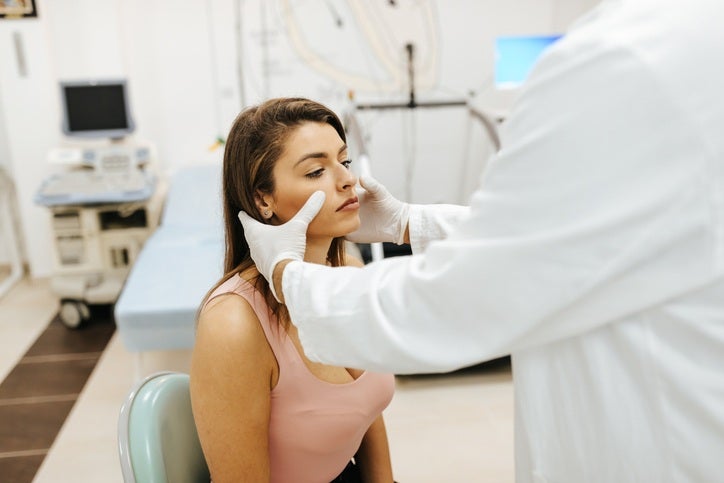How to Treat a Sinus Infection Effectively
A sinus infection can make even the simplest tasks feel exhausting. The congestion, headaches, and facial pain associated with sinus infections can disrupt daily life, making it difficult to focus or get restful sleep. While sinus infections are common, understanding how to treat a sinus infection effectively can make a huge difference in recovery time and symptom relief. Proper treatment is essential to avoiding complications and getting back to feeling your best as quickly as possible.

What is a Sinus Infection?
A sinus infection, also known as sinusitis, arises when the sinuses become inflamed due to a viral bacterial infection. The sinuses are air-filled cavities within the skull that produce mucus, which helps keep the nasal passages moist and free of irritants. When these passages become blocked, mucus builds up, creating an environment for infection to thrive.
There are two main variations of sinus infections: acute and chronic. Acute sinus infections are short-term and often caused by viral infections, such as the common cold. They typically last less than four weeks. Chronic sinus infections, on the other hand, last longer than 12 weeks and may be caused by persistent inflammation, allergies, or structural issues in the sinuses.
Common triggers for sinus infections include viral infections, bacterial infections, allergies, nasal polyps, and environmental irritants like smoke or pollution. Identifying the cause of your sinus infection is key to finding the best treatment.
Common Symptoms of a Sinus Infection
Recognizing sinus infection symptoms early can help you take action to relieve discomfort and prevent complications. Some of the most common signs of sinus infection include:
- Nasal congestion and stuffiness.
- Thick, discolored mucus.
- Facial pain and pressure, especially around the eyes, forehead, and cheeks.
- Headaches and ear pain.
- Postnasal drip, which causes a sore throat and coughing.
- Fatigue and difficulty sleeping.
- Bad breath or a reduced sense of smell.
Mild symptoms often overlap with colds and allergies, making it difficult to tell the difference. However, if symptoms continue for more than 10 days or get worse after initially improving, a bacterial infection may be present.
Natural Remedies for Sinus Infections
When searching for a solution to how to treat a sinus infection, many people would rather try natural remedies before turning to medications. Some people find symptom relief with home remedies, though these are not a substitute for medical treatment. Talk to your provider before trying alternative options.
- Steam inhalation: Inhaling steam over a bowl of hot water or in a warm shower can help open nasal passages and loosen mucus.
- Saline rinses: Using a saline spray or neti pot to rinse your nasal passages can help clear out mucus and allergens.
- Hydration: Drinking plenty of water helps thin mucus, which makes it easier to drain from the sinuses.
- Essential oils: Eucalyptus and peppermint oil can provide relief when inhaled or added to a warm compress.
- Herbal teas and anti-inflammatory foods: Ginger, turmeric, and honey have both anti-inflammatory and antibacterial properties that support healing.
- Rest and sleep: Getting enough rest helps the immune system fight off infections more effectively.
Medical Treatments for Sinus Infections
For more severe cases, over-the-counter and prescription medications can help relieve symptoms and speed up recovery. Some common medical treatments include:
- Decongestants: Medications like pseudoephedrine (Sudafed) can reduce swelling in the nasal passages, making it easier to breathe.
- Pain relievers: Over-the-counter pain medications like ibuprofen or acetaminophen can relieve headaches and facial pain.
- Antibiotics: If you’re diagnosed with a bacterial infection, a doctor may prescribe antibiotics. However, these are only necessary if symptoms persist or worsen.
- Prescription treatments: In cases of chronic sinus infections, nasal corticosteroids or allergy medications may be recommended.
When to Seek Medical Attention
While many sinus infections clear up on their own, there are times when medical attention is necessary. You should see a doctor if you experience:
- Symptoms that last longer than 10 days without improvement
- Severe facial pain, swelling, or fever
- Worsening symptoms after an initial improvement
- Signs of a more serious infection, such as vision problems or swelling around the eyes
Complications from untreated sinus infections can include sinus abscesses, ear infections, or the infection spreading to other parts of the body, though the latter is rare. Seeking prompt medical care can help prevent these issues and help you understand how to treat a viral or bacterial sinus infection.
Preventing Sinus Infections
Taking steps to prevent sinus infections can save you from discomfort and repeated illness. Here are some ways to reduce your risk:
- Avoid allergens and irritants: Dust, pollen, mold, and smoke can trigger sinus inflammation.
- Practice good hygiene: Make sure to wash your hands regularly to prevent viral infections that can lead to sinusitis.
- Stay hydrated: Drinking water helps keep mucus thin and sinuses clear.
- Use a humidifier: Keeping indoor air moist prevents nasal passages from drying out.
- Strengthen your immune system: Eating a balanced diet, getting regular exercise, and getting enough sleep can help your body fight off infections.
How Can We Help?
If you’re struggling with persistent sinus infections, Oasis ENT in Surprise, AZ, is here to provide expert care and effective treatment options. Our team offers a range of solutions, from medical therapies such as nasal steroids and antibiotics to advanced procedures like Balloon Sinus Dilation and Endoscopic Sinus Surgery. For patients with chronic sinus issues, we also provide minimally invasive treatments designed for long-term relief.
Get Rid of a Sinus Infection and Breathe Easy With Oasis ENT
Don’t let a sinus infection disrupt your daily life—early treatment is key to a faster recovery and long-term relief. If your symptoms persist or keep coming back, the expert team at Oasis ENT is here to help with advanced, patient-focused solutions tailored to your needs. From allergy management to minimally invasive sinus procedures, we specialize in effective treatments that go beyond temporary relief. Take control of your sinus health today—schedule a consultation and start breathing easier with solutions from our experienced specialists!
The information provided in this article is for informational and educational purposes only and does not constitute medical advice. It is not intended to diagnose, treat, cure, or prevent any disease or medical condition. Always seek the guidance of your physician or other qualified healthcare provider with any questions you may have regarding a medical condition or treatment.
Results may vary: Treatment outcomes and health experiences may differ based on individual medical history, condition severity, and response to care.
Emergency Notice: If you are experiencing a medical emergency, call 911 or seek immediate medical attention.


